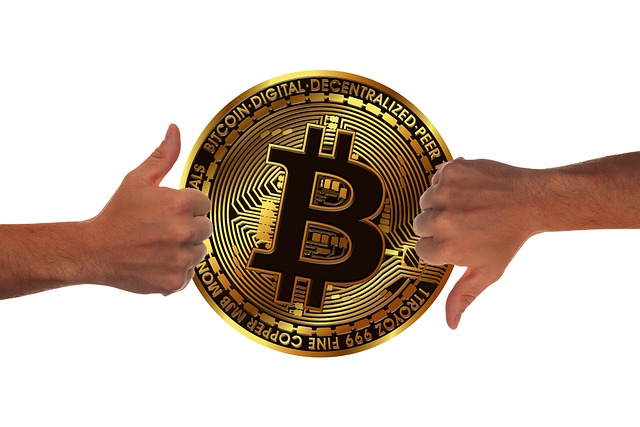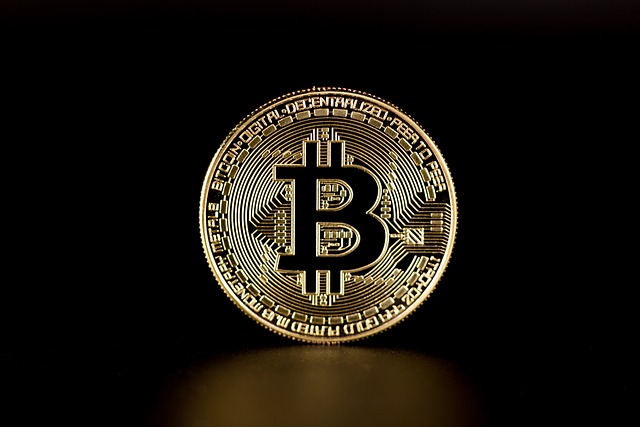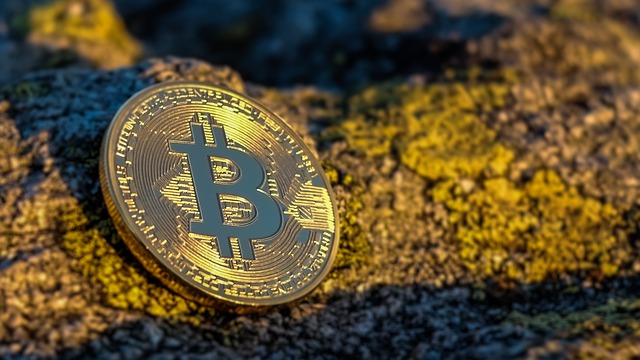Decentralized Finance Advantages for a Brighter Financial Future
Decentralized Finance Advantages for a Brighter Financial Future

Why Decentralized Finance is the Future of Finance
The future of finance lies in decentralization. Traditional financial systems have long been dominated by centralized institutions, which act as intermediaries and gatekeepers. However, decentralized finance, often referred to as DeFi, is changing the game. It allows individuals to transact directly with each other, eliminating the need for intermediaries and reducing costs. This shift towards decentralization not only promotes financial inclusion but also empowers individuals with greater control over their own money and financial decisions.
One of the main advantages of decentralized finance is its ability to provide financial services to the unbanked and underbanked populations. In many parts of the world, access to traditional banking services is limited or non-existent. However, with decentralized finance, anyone with a smartphone and internet connection can participate in financial transactions. This opens up a world of opportunities for those who have been excluded from the traditional financial system, allowing them to save, invest, and access loans without the need for a traditional bank. By enabling economic inclusion, decentralized finance has the potential to uplift individuals and communities, driving economic growth and reducing inequality.
The Basics of Decentralized Finance
Decentralized Finance (DeFi) is an emerging concept that aims to transform traditional financial systems by leveraging blockchain technology. At its core, DeFi refers to a decentralized ecosystem of financial applications and protocols that enable individuals to access financial services without the need for intermediaries such as traditional banks. Unlike centralized financial systems, which are governed by a single entity, DeFi operates on a distributed network of computers, making it more transparent and resistant to censorship.
One of the fundamental principles of DeFi is the use of smart contracts, which are self-executing agreements that automatically execute predefined terms and conditions. These smart contracts are powered by blockchain technology, ensuring that transactions are tamper-proof and transparent. By eliminating the need for intermediaries, DeFi allows users to directly interact with financial services, such as lending, borrowing, trading, and yield farming, among others. This decentralized nature of DeFi not only reduces costs and enhances efficiency but also empowers individuals by giving them greater control over their financial assets.
The Advantages of Decentralized Finance
Decentralized finance, also known as DeFi, holds several advantages over traditional financial systems. First and foremost, DeFi eliminates the need for intermediaries like banks and brokers, allowing individuals to directly control their finances. This aspect empowers users by providing them with complete autonomy and control over their assets. Unlike traditional finance, which is often centralized and governed by a handful of entities, DeFi operates on a decentralized and transparent platform, enabling individuals to make their own financial decisions without relying on a centralized authority.
Moreover, decentralized finance promotes financial inclusivity by allowing anyone with an internet connection to access financial services and products. This is particularly significant for people in underserved regions or those who lack access to traditional banking services. DeFi offers a unique opportunity for economic inclusion, enabling individuals to engage in investment, lending, and other financial activities that were previously inaccessible to them. By leveraging blockchain technology, which underlies DeFi applications, financial services can be provided globally, breaking down barriers and making financial opportunities available to anyone, irrespective of their geographical location or socioeconomic background.
How Decentralized Finance Empowers Individuals
Decentralized finance, also known as DeFi, is revolutionizing the way individuals interact with the financial world. By leveraging blockchain technology, DeFi enables individuals to have direct control and access to financial services without the need for intermediaries like banks. This newfound empowerment brings a range of benefits that can transform the lives of individuals.
One significant way DeFi empowers individuals is by providing them with greater financial inclusivity. Traditional financial systems often exclude those who lack access to formal banking services or credit history. However, DeFi lowers these barriers by offering decentralized lending and borrowing platforms, allowing anyone with an internet connection to participate. This creates opportunities for individuals in underserved communities, providing them with a pathway to access financial services and improve their economic situations. Through DeFi, individuals can take control of their financial destiny, unburdened by traditional constraints.
• DeFi allows individuals to have direct control and access to financial services without intermediaries like banks.
• Blockchain technology enables this empowerment by ensuring transparency, security, and immutability of transactions.
• Traditional financial systems often exclude those who lack access to formal banking services or credit history.
• DeFi lowers these barriers by offering decentralized lending and borrowing platforms.
• Anyone with an internet connection can participate in DeFi, providing opportunities for underserved communities.
• By taking advantage of DeFi, individuals can improve their economic situations and gain financial independence.
The Potential of Decentralized Finance for Economic Inclusion
Decentralized Finance (DeFi) holds immense potential for fostering economic inclusion around the world. By leveraging blockchain technology, DeFi platforms have the power to eliminate traditional barriers in accessing financial services, particularly for the unbanked and underbanked populations. With DeFi, individuals can bypass the need for a middleman, such as a bank, and directly participate in various financial activities, including lending, borrowing, investing, and even earning interest on their assets.
One of the key advantages of DeFi is its ability to provide financial services to individuals who have been excluded from the traditional banking system. In many developing countries, a significant portion of the population lacks access to basic financial services, such as bank accounts or loans. By utilizing DeFi platforms, individuals can use their smartphones or computers to access a wide range of financial products and services, enabling them to take control of their financial future. This empowerment can lead to increased economic stability and prosperity for individuals who were previously left behind by traditional banking systems.
Decentralized Finance and Financial Stability
Decentralized finance (DeFi) has emerged as a disruptive force in the traditional financial landscape, revolutionizing the way we think about financial stability. Unlike the centralized systems of traditional banking, DeFi operates on blockchain technology, which offers transparency and immutability. This decentralized nature of DeFi minimizes the risk of a single point of failure, enhancing financial stability in the process. With no central authority controlling or governing transactions, DeFi eliminates the need for intermediaries, reducing the risk of corruption or mismanagement that can destabilize the financial system.
Moreover, DeFi provides individuals with greater control over their financial assets, enabling them to participate in the global financial system without relying on centralized institutions. Through smart contracts, individuals can engage in a wide range of financial activities such as lending, borrowing, and trading, all within the DeFi ecosystem. This empowers individuals by bypassing the traditional restrictions imposed by banks and financial institutions. With DeFi, financial stability is not solely reliant on institutions, but rather on a collective network of users who actively participate in ensuring the integrity and security of the system. As decentralized finance continues to evolve and gain traction, its potential to foster financial stability on a global scale becomes increasingly evident.
The Role of Blockchain Technology in Decentralized Finance
Blockchain technology plays a pivotal role in the realm of decentralized finance. It acts as the underlying foundation that enables the seamless, transparent, and secure transactions that are characteristic of decentralized finance.

One of the key advantages of blockchain technology in decentralized finance is its ability to provide transparency and security. Since transactions are recorded on a decentralized ledger, they cannot be altered or tampered with easily. This ensures that every transaction is verifiable and transparent, fostering trust and reducing the risk of fraud. Additionally, the use of advanced cryptographic techniques in blockchain technology enhances security measures, safeguarding the financial data and assets of individuals participating in decentralized finance. By leveraging blockchain technology, decentralized finance offers individuals the opportunity to take control of their financial transactions and assets, empowering them with a newfound sense of ownership and autonomy.
How Decentralized Finance is Disrupting Traditional Banking
Decentralized finance, also known as DeFi, is revolutionizing the traditional banking sector in ways never seen before. With the advent of blockchain technology, individuals now have the ability to participate in financial activities without the need for intermediaries like banks. This disruption is reshaping the banking landscape, challenging the status quo and offering a multitude of benefits to users.
Firstly, DeFi eliminates the need for traditional banking institutions by providing a decentralized platform for financial transactions. This means individuals can bypass the limitations and fees imposed by banks, giving them more control over their finances. With DeFi, anyone with an internet connection can access a range of financial services, such as lending, borrowing, and asset management, all powered by smart contracts on the blockchain. By removing the middleman, DeFi empowers individuals to take ownership of their financial decisions and fosters a sense of financial freedom. This democratization of finance not only benefits individuals but also has the potential to promote financial inclusion on a global scale.
The Challenges and Risks of Decentralized Finance
While decentralized finance offers numerous advantages, it also comes with its fair share of challenges and risks. One of the main challenges is the lack of regulation and oversight in decentralized finance platforms. Unlike traditional financial institutions that are heavily regulated, many decentralized finance platforms operate in a relatively unregulated environment. This lack of oversight can result in vulnerabilities and potential risks for users, such as scams, fraudulent activities, and market manipulation. Additionally, the absence of a central authority means that resolving disputes and recovering any lost funds can be more challenging in decentralized finance.
Another challenge in decentralized finance is the issue of scalability. As the popularity of decentralized finance grows, the limitations of current blockchain networks become more apparent.

In conclusion, while decentralized finance offers exciting opportunities for financial inclusion and empowerment, it is important to be aware of the challenges and risks it entails. Regulation and oversight, as well as scalability issues, are among the key challenges that need to be addressed for decentralized finance to reach its full potential. Despite these challenges, the future outlook for decentralized finance remains promising, as the technology continues to evolve and efforts are made to ensure a secure and sustainable decentralized financial ecosystem.
The Future Outlook of Decentralized Finance
Looking ahead, the future of decentralized finance appears promising. With its ability to provide greater access and control over financial services, decentralized finance has the potential to revolutionize the way we interact with money. As more people become aware of its benefits and embrace this new financial paradigm, the ecosystem is expected to grow exponentially.
One of the key drivers behind the future outlook of decentralized finance is the rapid advancements in blockchain technology. Blockchain provides the necessary infrastructure for secure and transparent transactions without the need for intermediaries. As this technology continues to evolve and improve, it will enable decentralized finance to become more efficient and scalable, opening up new possibilities for innovation and financial inclusion. Moreover, as regulators and policymakers around the world begin to recognize the potential of decentralized finance, we can anticipate the development of supportive regulatory frameworks that will further legitimize and foster the growth of this emerging industry.
As we envision the future of decentralized finance, it becomes evident that it holds the potential to disrupt traditional banking systems. By eliminating the need for intermediaries and providing users with full control over their finances, decentralized finance empowers individuals and reduces reliance on traditional financial institutions. This shift can lead to increased financial autonomy and expanded opportunities for individuals to participate in the global economy. Additionally, decentralized finance has the potential to address the challenges of economic inclusion, offering financial services to the billions of people who are currently unbanked or underbanked. By leveraging blockchain technology and embracing the principles of transparency and inclusivity, decentralized finance has the power to create a more equitable and accessible financial system for all.
What is decentralized finance?
Decentralized finance, also known as DeFi, is a term used to describe a financial system that operates on blockchain technology, allowing individuals to engage in financial activities without the need for intermediaries like banks or traditional financial institutions.
Why is decentralized finance considered the future of finance?
Decentralized finance offers several advantages over traditional finance, such as increased accessibility, transparency, and lower costs. It also empowers individuals by giving them control over their financial assets and enables economic inclusion for those who are currently underserved by the traditional banking system.
How does decentralized finance work?
Decentralized finance works by utilizing smart contracts on blockchain platforms. These smart contracts automatically execute transactions and other financial activities without the need for intermediaries.

What are the advantages of decentralized finance?
Some advantages of decentralized finance include lower transaction fees, faster and more efficient transactions, increased accessibility to financial services, greater transparency, and the ability to retain control over one’s financial assets.
How does decentralized finance empower individuals?
Decentralized finance empowers individuals by giving them full control over their financial assets and eliminating the need for intermediaries. It allows individuals to access financial services, make transactions, and invest in a decentralized and permissionless manner, without relying on traditional banks or financial institutions.
Can decentralized finance promote economic inclusion?
Yes, decentralized finance has the potential to promote economic inclusion. It allows individuals who are unbanked or underbanked to access financial services and participate in the global economy. Through decentralized finance, people can engage in lending, borrowing, and investing activities, even without a traditional bank account.
How does decentralized finance impact financial stability?
Decentralized finance introduces new challenges and risks, as it operates outside of traditional financial systems. While it offers benefits such as transparency and reduced counterparty risk, it also presents risks like smart contract vulnerabilities and potential market manipulation. However, with proper regulations and risk management, decentralized finance can contribute to overall financial stability.
What is the role of blockchain technology in decentralized finance?
Blockchain technology serves as the underlying infrastructure for decentralized finance. It enables the creation of smart contracts, immutability of transaction records, and decentralization of financial activities. Blockchain technology ensures transparency, security, and trust in decentralized finance.
How is decentralized finance disrupting traditional banking?
Decentralized finance disrupts traditional banking by eliminating the need for intermediaries like banks. It provides an alternative financial system that is accessible to anyone with an internet connection. This shift in power from centralized institutions to individuals challenges the traditional banking model and its control over financial transactions.
What are the challenges and risks associated with decentralized finance?
Some of the challenges and risks of decentralized finance include smart contract vulnerabilities, regulatory uncertainty, potential for market manipulation, and the risk of hacks or security breaches. It is important to carefully assess and manage these risks to ensure the stability and security of decentralized finance.
What does the future hold for decentralized finance?
The future of decentralized finance looks promising. As more individuals and institutions recognize its potential, we can expect to see increased adoption and innovation in this space. With advancements in blockchain technology and regulatory frameworks, decentralized finance has the potential to revolutionize how we engage in financial activities.
Todays Featured Product:
Buy, exchange and grow your crypto securely with a Ledger hardware wallet, combined with the Ledger Live app. It’s never been easier to keep your crypto safe and accessible. Buy direct from Ledger.com and get todays Special Offers Here.




